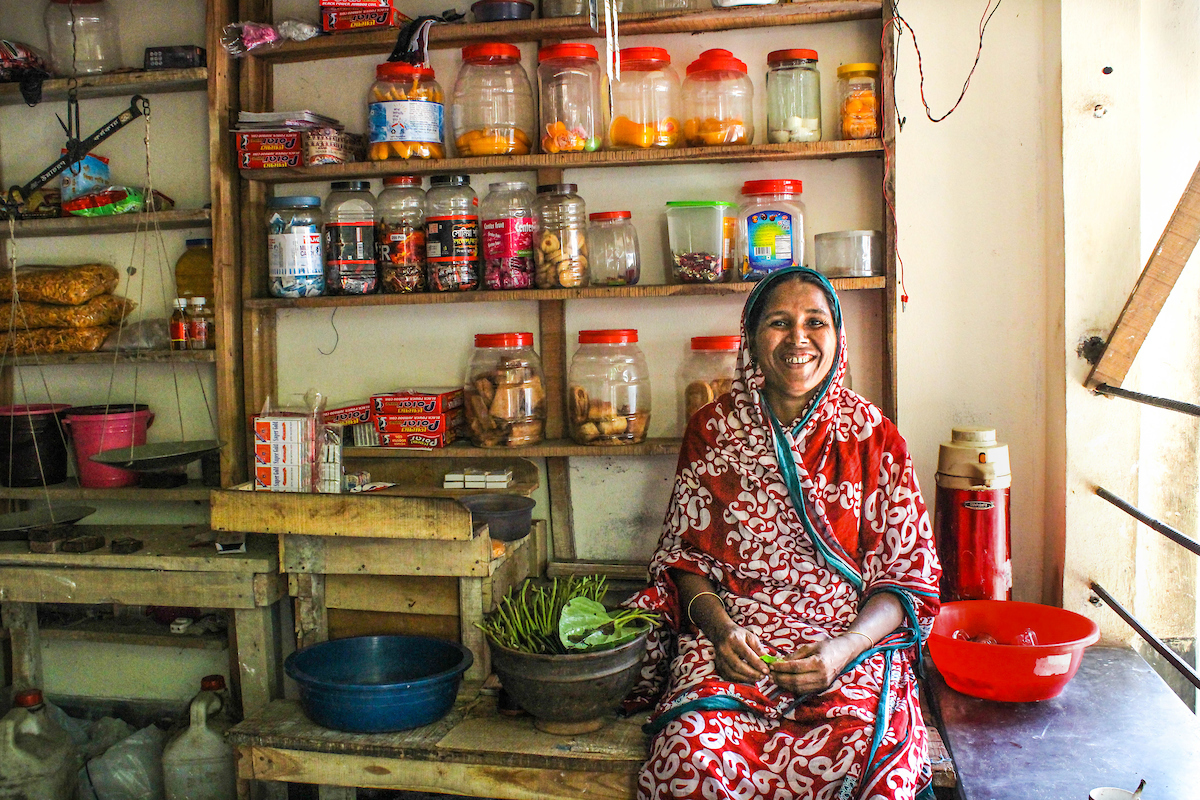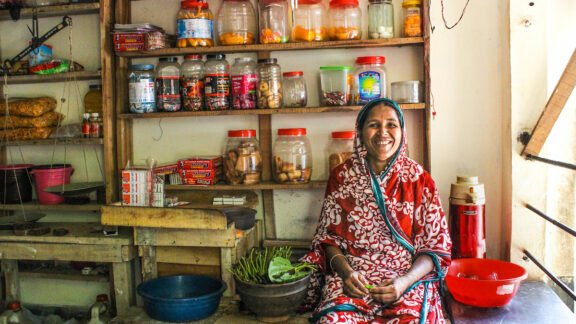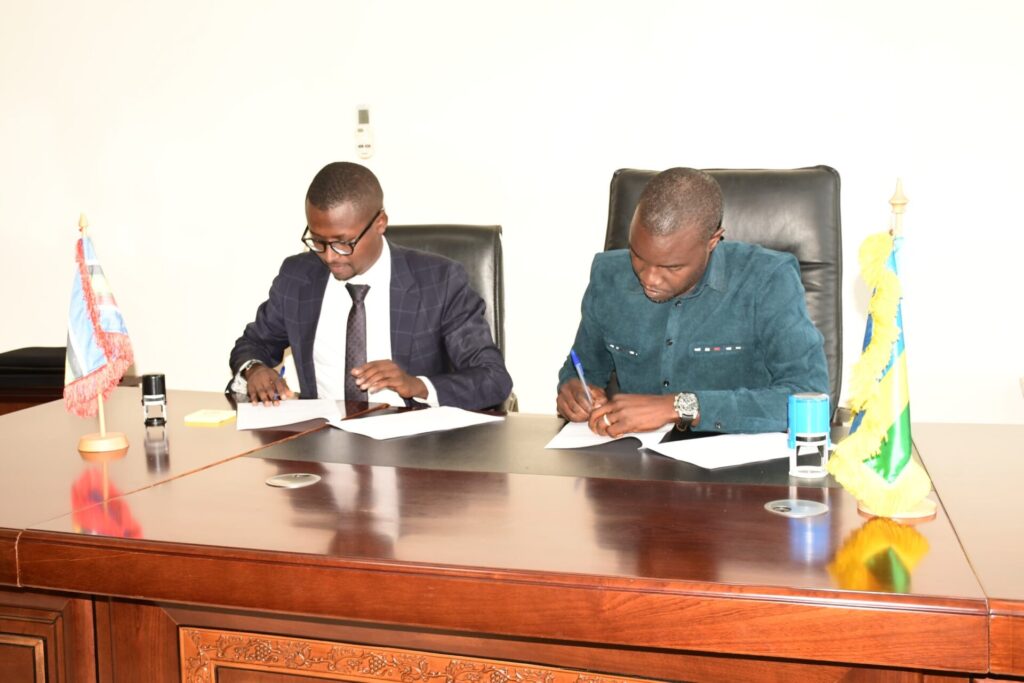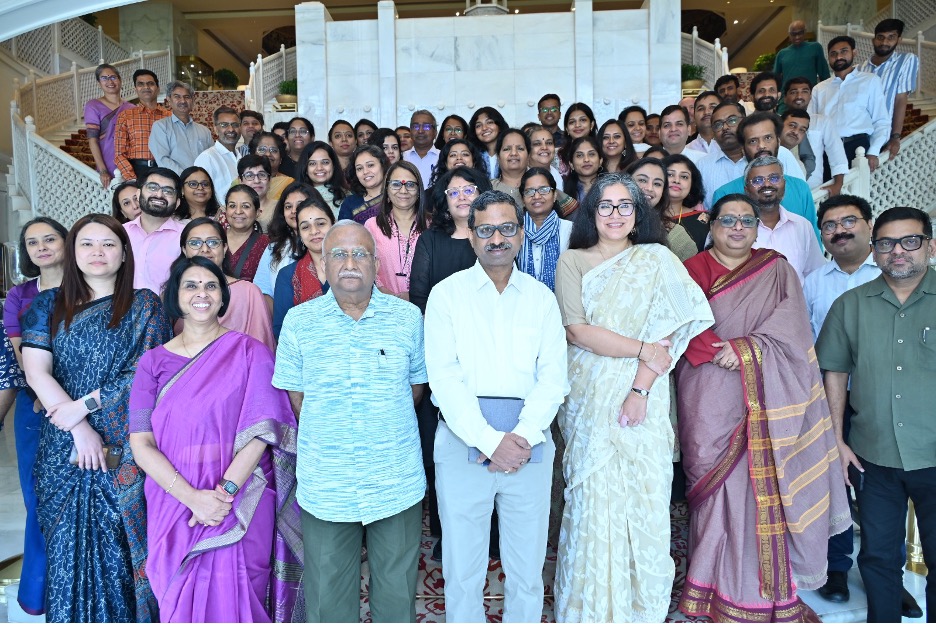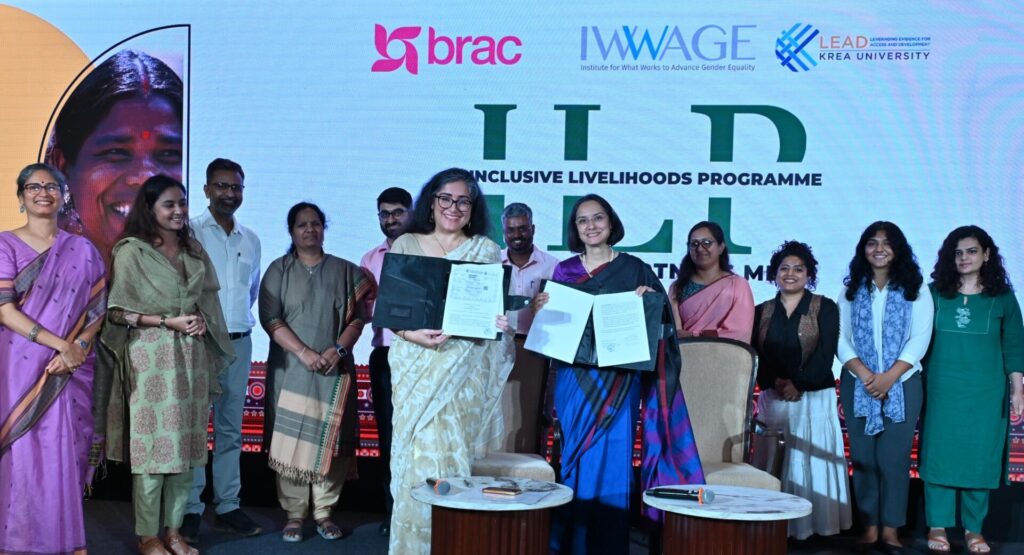Extreme poverty is caused by a lack of opportunity. It is not a choice people make or the result of a lack of talent, and it requires significant support to escape it. Recent research reaffirms the existence of poverty traps and shows how receiving psychological and social support, in addition to a transfer of resources, can make programs more cost-effective and enable people to escape this poverty trap long term.
By Courtney Calardo, Head of Communications and Max Gollin, Deputy Manager of Communications | BRAC Ultra-Poor Graduation Initiative
This piece was originally published on socialprotection.org on June 22nd, 2022. Read it here.
Two recently released studies highlight the importance of taking a multifaceted approach when combating extreme poverty. In both, the researchers provide insight into the economics behind why multifaceted approaches, such as the Graduation approach, have such durable impacts. As years of progress on poverty alleviation are reversed by overlapping shocks from COVID-19, climate change, and conflict, forcing hundreds of millions of people into extreme poverty, the international development community urgently needs to understand these dynamics. With this knowledge, we are better equipped to advance evidence-driven policies and programs which empower the people who are most marginalised to improve their wellbeing and their resilience so they are better prepared to withstand future shocks.
Why do people stay poor?
In an 11 year study published by Oxford Academic’s Quarterly Journal of Economics, researchers at MIT and the London School of Economics discovered further proof that poverty traps are real, identifying a poverty threshold where households with assets below that threshold are unable to access sufficient resources to move out of low productivity jobs that are often very labour intensive. Households with productive assets beyond the threshold are able to take on more productive occupations and are more likely to escape the poverty trap.
The research established that it is not a lack of capability or talent that prevented people in extreme poverty from reaching the threshold, it was a lack of opportunity. Most people living in poverty work, but their jobs are casual, unstable or irregular, and poorly paid. “Understanding why people stay poor requires understanding why they do not get better jobs,” said researchers Oriana Bandiera, Professor of Economics at the London School of Economics, and Anton Heil, Ph.D candidate in Economics at the University of California, Berkeley.
The study refutes the notion of equal opportunity – that idea that all people with the same talent will be able to reach the same point regardless of where they started – and challenges the view that people are poor because they do not possess the talent needed to work better jobs. Instead, it provides evidence that people living in extreme poverty are trapped in occupations that do not best suit their needs due to a lack of opportunity, not a lack of talent.
A “big push”, or a significant transfer of assets, can empower people to escape the poverty trap and continue moving on a pathway out of poverty over time, according to the researchers. The existence of a poverty threshold implies that only transfers large enough to push households past the threshold will reduce poverty in the long run. This “big push” can come in the form of cash or cash plus complementary interventions such as training in business and finance skills, among others. If the transfers are too small or incremental, they may support or improve the household’s consumption in the short term, but will not provide the support needed to cross the poverty threshold. Once they cross this threshold, they have the opportunity to purchase additional assets, which they can grow over time, moving out of low wage, casual jobs into more stable, better paying jobs.
“Two people with exactly the same skills, talent, motivation will end up rich or poor depending on whether they were born that way,” the researchers continued. “In this world, only large enough transfers are effective.” This has important policy implications and challenges traditional approaches which may work to improve consumption in the short term, but will not get people out of the poverty trap. “To tackle persistent poverty, we need big push policies that tap into the talents of the poor rather than just propping up their consumption.”
One such “big push” is provided by the Graduation approach – a multifaceted set of time bound interventions designed to combat the complex nature of extreme poverty long term. These interventions are adapted to the local context and respond to the multidimensional nature of extreme poverty by meeting participants’ basic needs through social protection, providing training and assets for income generation, financial literacy and savings support, and social empowerment through community engagement and life skills training – all facilitated through in person coaching.
As the pioneer of the Graduation approach in 2002, BRAC has spent two decades supporting the implementation, evaluation, innovation and adaptation of the Graduation approach in more than 14 countries around the world. Through our work, we’ve seen firsthand how social empowerment interventions and psychological support – provided through ongoing coaching – are critical complements to large asset transfers for achieving long-term impact through the Graduation approach. In fact, social empowerment is considered one of four key elements essential for achieving the long-term impact we’ve seen in our Graduation Program in Bangladesh: 93% of those who completed the program have seen a continued increase in income, savings, consumption, and more for seven years afterward.
Tackling psychosocial constraints to alleviate poverty
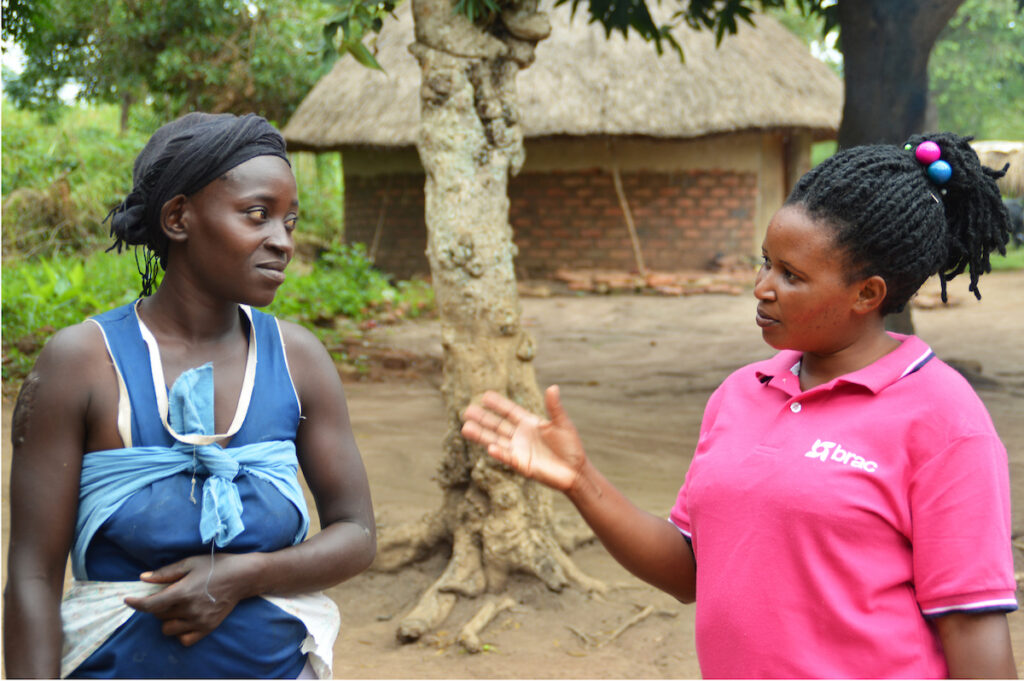
New research by experts at the World Bank, the Abdul Latif Jameel Poverty Action Lab, Northwestern and others, on a government-led Graduation program in Niger sheds further light on how addressing psychological and social constraints is also key to generating greater returns and making Graduation programs more cost-effective. The study was a four-arm randomised evaluation of women living in extreme poverty already enrolled in a national cash transfer government program in Niger. The goal was understanding how psychosocial constraints might create barriers to seizing economic opportunities, for example, “in the context of very low levels of education and high gender inequality, women often lack self-esteem and mental bandwidth while frequently suffering from depression. Social and gender norms further undermine their capacity to control resources, go to the market, and run small businesses,” according to authors Patrick Premand and Thomas Bossuroy, both Senior Economists at the World Bank.
The study was also designed to evaluate whether social program components designed to address these challenges could improve overall outcomes for people living in poverty.
Women who only received cash experienced increased autonomy, including greater control over their own earnings and productive activities, and increased relative share of household revenues. By comparison, women who received psychosocial support experienced strengthened social relationships with their community and their partner, built social capital and experienced increases in household revenue through effects on other household members’ activities.
“The literature suggests mental health, aspirations and hope enable people to benefit from economic interventions and run with opportunities,” said Dean Karlan, a professor of economics and finance at the Kellogg School of Management at Northwestern and president and founder of Innovations for Poverty Action (IPA) who co-authored the study.
The arms that included psychosocial support had rates of returns that were higher than those of the arm that received only cash and were cost-effective 18 months after the intervention, “highlighting the value of addressing psychosocial constraints—not just primarily capital constraints—to open pathways out of extreme poverty.”
The findings from both of these studies reinforce what BRAC staff have observed often over the past two decades: combined with a large enough push, addressing social exclusion is crucial to addressing economic inclusion for long-lasting extreme poverty eradication. To achieve durable impact, poverty alleviation programs must build from knowledge about the mechanisms that trap people in poverty, and be multifaceted to reflect the multidimensional nature of extreme poverty.
References
Balboni, C. et al. (2022). Why do people stay poor?, The Quarterly Journal of Economics, Volume 137, Issue 2, May 2022, Pages 785–844, Accessible: https://doi.org/10.1093/qje/qjab045
Balboni, C. et al. (2015). Transforming the economic lives of the ultrapoor. IGC Growth Brief Series 004. London, Accessible: https://www.theigc.org/wp-content/uploads/2015/12/IGCJ2287_Growth_Brief_4_WEB.pdf
Bossuroy, T. et al. (2022). Tackling psychosocial and capital constraints to alleviate poverty. Nature 605, 291–297, Accessible: https://doi.org/10.1038/s41586-022-04647-8
Premand, P., & Bossuroy, T. (2022) Cost-effective government intervention opens pathways out of extreme poverty for women in Niger, Accessible: https://socialsciences.nature.com/posts/cost-effective-government-intervention-opens-pathways-out-of-extreme-poverty-for-women-in-niger
Bossuroy, T. et al. (2022) Yes we can! Unbundling poverty graduation programs for cost-effective impact, Accessible: https://blogs.worldbank.org/impactevaluations/yes-we-can-unbundling-poverty-graduation-programs-cost-effective-impact
Witynski, M. (2022) To fight extreme poverty, empower women with more than cash, Accessible: https://news.northwestern.edu/stories/2022/04/fighting-extreme-poverty-women-niger/

